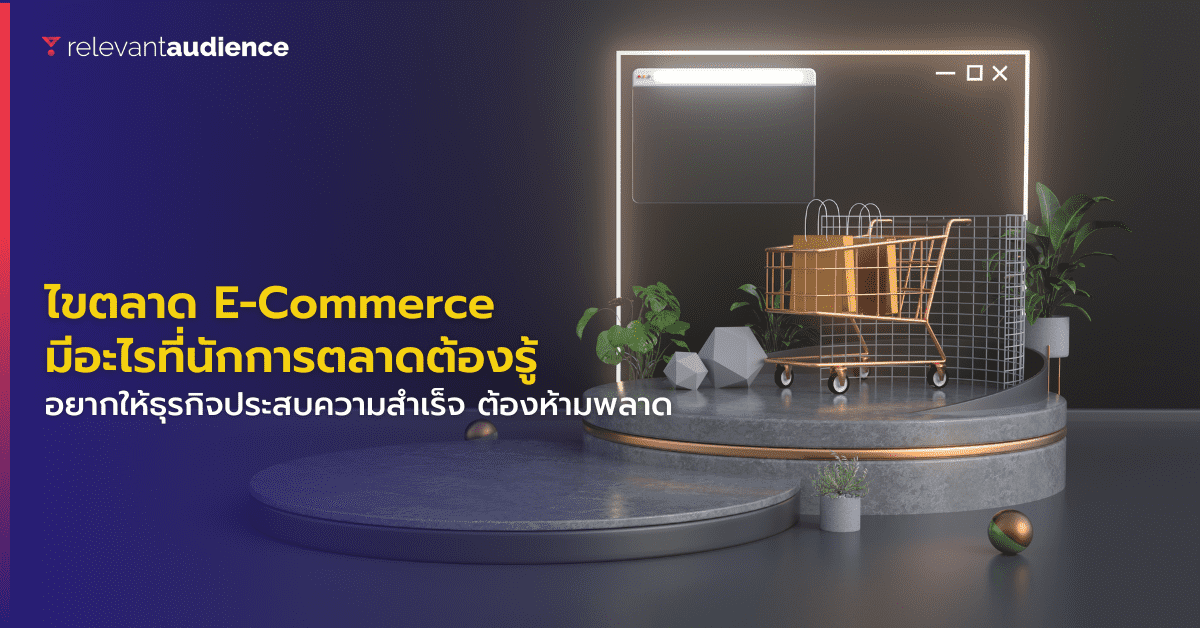If you ask internet users today if they have ever heard of E-Commerce, few would say they haven’t. This is one of the most popular business models in this era. Simply put, E-Commerce is selling goods through online platforms such as apps or websites. Coupled with the recent pandemic affecting the world, many people have been forced to stay at home, leading to a surge in popularity for this type of business.
For entrepreneurs or marketers looking for ways to capitalize on the E-Commerce trend but lacking sufficient knowledge, there may be significant risks. Therefore, this article will introduce new entrepreneurs to the pros and cons of each type of E-Commerce business model and what it takes to succeed in the long run. Let’s get started!
Types of E-Commerce
In general, the world of E-Commerce has three main types that are well known:
1. Business to Consumer (B2C)
For B2C or Business to Consumer businesses, literally translated, it is a business model where entrepreneurs or brands sell products directly to consumers, whether through online or offline stores. Popular product categories include food, clothing, and books, while service categories include airlines and hotels.
2. Business to Business (B2B)
Business to Business or B2B businesses are business models that rely on trade between entrepreneurs. The purpose is to meet their own business needs, whether it’s raw materials, production, or services.
3. Consumer to Consumer (C2C)
Consumer to Consumer or C2C businesses are characterized by online platform formats or Online Marketplaces that help consumers sell products to other consumers. Examples include eBay and Facebook Marketplace.
What Business Model is Right for Entrepreneurs?
As a new entrepreneur who wants to succeed in E-Commerce, it is essential to know which business model is best suited for your brand’s products or services. Let’s take a look!
Direct to Consumer (DTC)
This Direct to Consumer or D2C model is popular today, where brands create their own sales channels directly to consumers without intermediaries, whether through their own website or app.
Subscription DTC
This model is similar to the DTC business model, where brands create their own online sales channels, but payments are made in the form of payment plans or subscriptions.
- Pros: Payment plans help brands predict stable revenue and demonstrate customer brand loyalty.
- Cons: Not all products or services can be adapted to this strategy, so feasibility should be studied before using it.
White and Private Label
This model is suitable for entrepreneurs who are building a brand, involving manufacturers and retailers. It is a blank labeling model, allowing those who want to build a brand to name and price their products differently, such as clothing and food. In the digital world, this White Label model is often referred to as digital marketing services, such as SEO, SEM, and website hosting and design.
- Pros: Brands don’t have to bear the burden of producing their own products, giving them more time to focus on other components such as marketing.
- Cons: If you get a low-quality factory, it can cause problems for the brand in the long run.
E-Retailer
E-Retailer is a basic model that almost every business wanting to grow in the E-Commerce direction needs, which is to open additional online sales channels, in addition to having just a physical store.
- Pros: Entrepreneurs can offer a wide variety of products without having to consider production.
- Cons: Since the brand doesn’t have any outstanding products, building brand awareness may be difficult and require other marketing strategies.
Of course, to make an E-Commerce business successful, choosing the right business model is an essential component. Knowing the strengths and weaknesses of your products or services will help you narrow down unsuitable models and increase the chances of finding the best model for your brand.
Importantly, E-Commerce is not a decision that, once a model is chosen, will lead to immediate success. It requires consistent evaluation and adaptation when necessary to keep your business efficient in the long term.
Get Digital Marketing Consultation for Relevant Audience
Relevant Audience is a company providing services related to Digital Performance Marketing Agency, aiming to provide digital marketing services to businesses to reach target audiences at the right time, place, and device through online channels. Our services cover Search Marketing, Social Media Ads, Search Ads, and SEO (Search Engine Optimization) to Influencer Marketing and are also part of the Google Partners program.
For more information
Tel: 02-038-5055
Email: info@relevantaudience.com Website: www.relevantaudience.com







